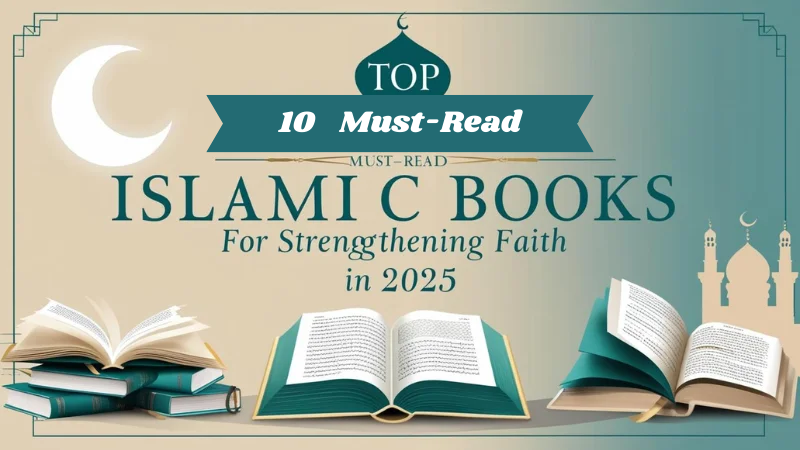Top 10 Must-Read Islamic Books to Strengthen Your Faith in 2025
Introduction
Reading books is an important tool for understanding Islamic teachings and knowledge. Top Must-Read Islamic Books to Strengthen Your Faith in 2025 play a crucial role in deepening our connection with Islam. This article aims to provide Muslims with a list of important and useful Islamic books to strengthen their faith and improve their spirituality in 2025.
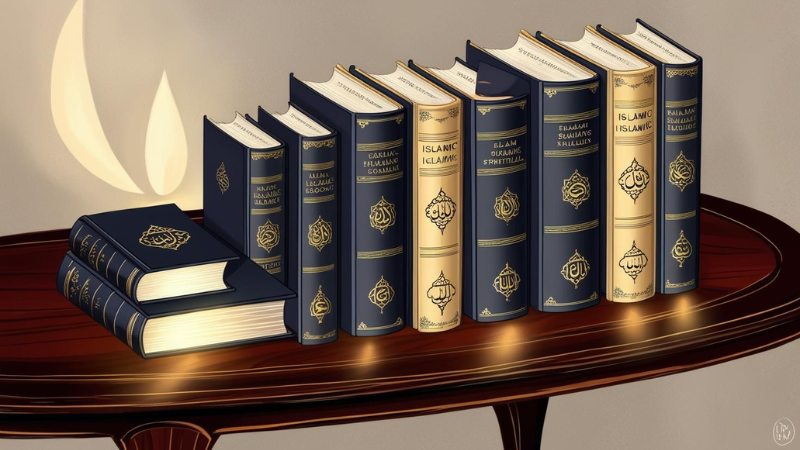
Islamic books not only provide guidance for our beliefs and worship but also serve as a comprehensive guide to improving our ethics, social responsibilities, and various aspects of life. Reading these books not only exposes us to the basic teachings of Islam but also shows us the way to elevate our spirituality, strengthen our relationship with Allah, and solve various problems in life.
In this article, we will mention these Top Must-Read Islamic Books to Strengthen Your Faith in 2025 that will help strengthen the faith of Muslims in 2025 and contribute to their spiritual development. Reading these books will deepen your understanding of your religion and help you become a balanced and practical Muslim.
“Dear Viewers! In this video we have brought important information for you.”
“We have prepared this video for your guidance, please watch and let us know your valuable feedback.”
Table of Contents
1:The Holy Quran
The study of the Quran is the most important and necessary act for Muslims. The Quran is the word of Allah which was revealed to the Prophet Muhammad (peace be upon him). It contains all the commands of Allah, moral guidelines, laws, and the right way to live. The Quran is considered the first and most important book of Islamic books. The purpose of conveying the message of Allah to humans is to enable humans to lead their lives on a straight and correct path. The various surahs and verses of the Quran not only provide spiritual guidance but also provide guidance for Muslims in worldly matters.

Reciting the Quran gives a person peace and satisfaction. This book is the food of the soul and it contains a message that responds to the natural needs of every human being. Reading the Quran, contemplating it and acting on it is an obligation on every Muslim, because it is the best guidance for human well-being.
2.Sahih Bukhari
Sahih Bukhari is one of the most authoritative Islamic books of Hadith that describes various aspects of the life of the Prophet Muhammad (peace and blessings be upon him). This Islamic books explains the biography, sayings, actions, and states of silence of the Prophet (peace and blessings be upon him). Imam Bukhari worked diligently while compiling this book, ensuring that each Hadith was thoroughly examined for authenticity and truthfulness.
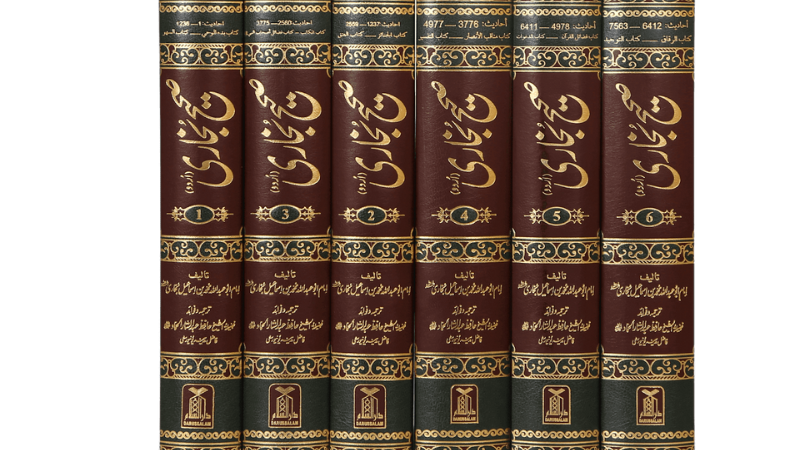
Sahih Bukhari contains more than 7000 Hadiths, offering vivid insights into the life of the Prophet (peace and blessings be upon him) and his moral principles. With the help of these Hadiths, Muslims can deepen their understanding of Islam and improve their lives by practicing them. Through Sahih Bukhari, people strengthen their faith and gain confidence in their actions, making it one of the most essential Islamic books for spiritual guidance.
3.Sahih Muslim
Sahih Muslim is also highly regarded among Islamic books and is the second most authoritative Islamic books after Sahih Bukhari. It contains various hadiths and sayings and actions of the Prophet Muhammad (peace and blessings of Allah be upon him). Imam Muslim has compiled this Islamic books very carefully and has checked the authenticity of each hadith. This book also highlights various aspects of Muslim social life, such as prayer, fasting, zakat, pilgrimage and moral teachings
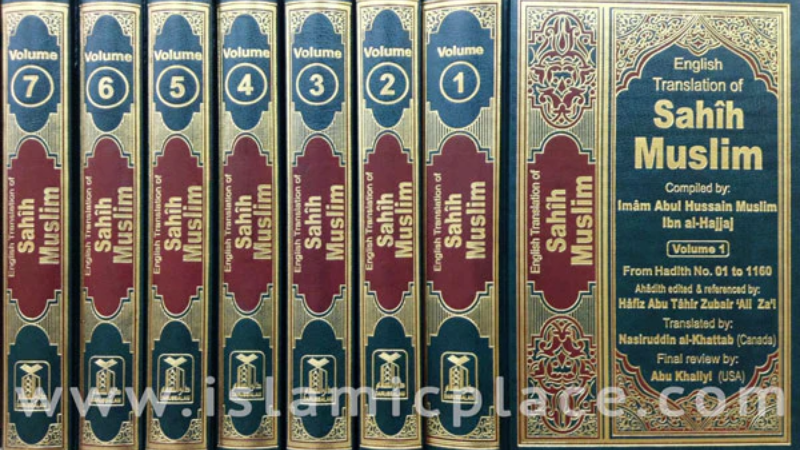
The importance of Sahih Muslim is that it describes the actions and messages of the Prophet (peace and blessings of Allah be upon him) in a complete context, which guides Muslims to make the right decisions in their daily lives.
4.Fiqh
“Fiqh” is an important Islamic science book that enlightens Muslims with the various laws and rulings of the religion of Islam. This Islamic book helps in understanding the foundations of Islamic jurisprudence and through it, a person learns the principles of living his daily life according to the religion of Islam.
Fiqh includes acts of worship, transactions, moral principles, financial rights, family issues and other important aspects of life. This islamic book explains the laws of Islam in detail and sheds light on their effects on religious, social and personal life.
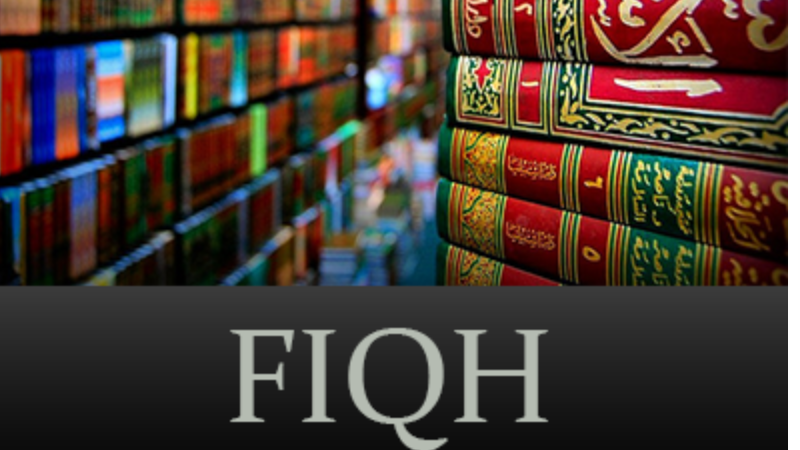
The purpose of “Fiqh” is to provide guidance to a Muslim to live according to religion so that he can better understand his rights and responsibilities. It provides guidance to solve various jurisprudential issues and points out a correct path for Muslims that is in accordance with the principles of Islam.
5.Books of Ibn Taymiyyah
The Islamic books of Ibn Taymiyyah add to the importance of Islamic books and provide detailed discussions on the history and principles of Islam. Ibn Taymiyyah presented an influential interpretation of the Islamic intellectual system in his time. His islamic books provide Muslims with a deep understanding of Islamic principles. His writings greatly influenced Islamic thought and his theories still serve as a guide in Islamic fqih today.
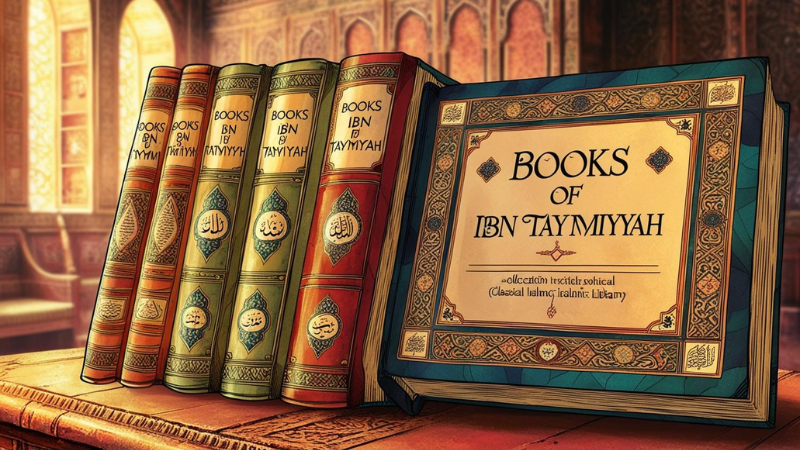
Ibn Taymiyyah’s books also contain important discussions on Sufism, intellectual differences, and Islamic political philosophy, which are a treasure trove of knowledge for any Muslim.
6:The Medicine of the Prophet
The Medicine of the Prophet provides guidance on the health and treatment of the Prophet Muhammad (peace be upon him). This islamic book describes the medical wisdom and treatment methods of the Prophet Muhammad (peace be upon him). Understanding the sentences in the Quran and Hadith and adopting the principles of Prophetic Medicine can be very beneficial for human health.
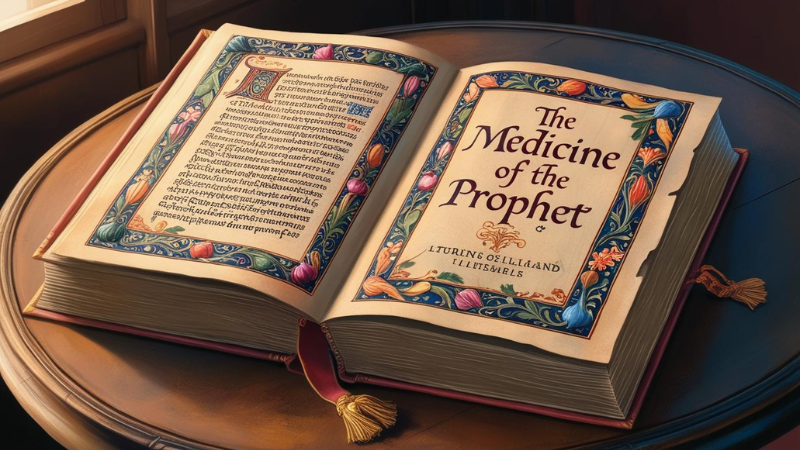
By adopting the methods of the Prophet Muhammad (peace be upon him) in this islmic book, a person not only achieves physical but also spiritual peace. The wisdom contained in Prophetic Medicine provides excellent guidance not only in terms of treatment but also in terms of their spirituality.
7۔Ihya Ulum al-Din (Ihya Ulum al-Din) – Imam Ghazali
Ihya Ulum al-Din is a Islamic book by Imam Ghazali that explains the importance of religion, moral teachings, and the realities of the spiritual world. Imam Ghazali has understood the depths of Islamic spirituality in this book and has encouraged Muslims to follow the principles of religion in their worldly life. This Islamic book is not only about spirituality, but also makes Muslims understand their social responsibilities.
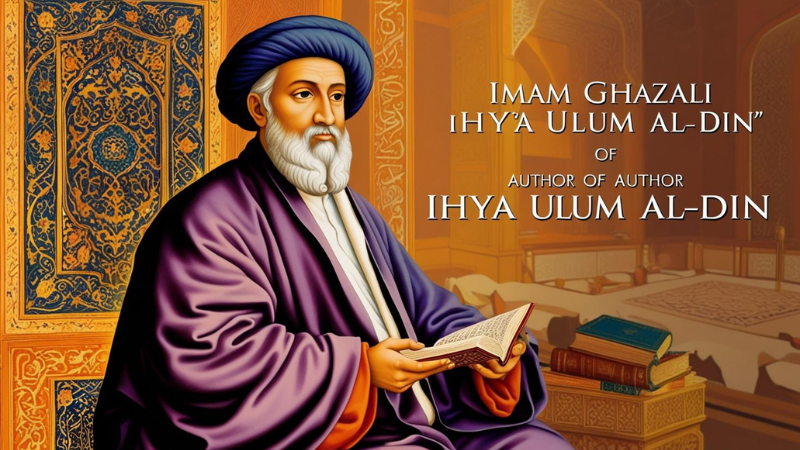
8۔Muqaddimah by Ibn Khaldun
The importance of Muqaddimah by Ibn Khaldun lies in the fact that this book presents a new perspective on history, society, and economics. Ibn Khaldun has discussed in detail in his Islamic book social changes and their effects. His concept of social evolution and economic development is also important for modern thinkers.
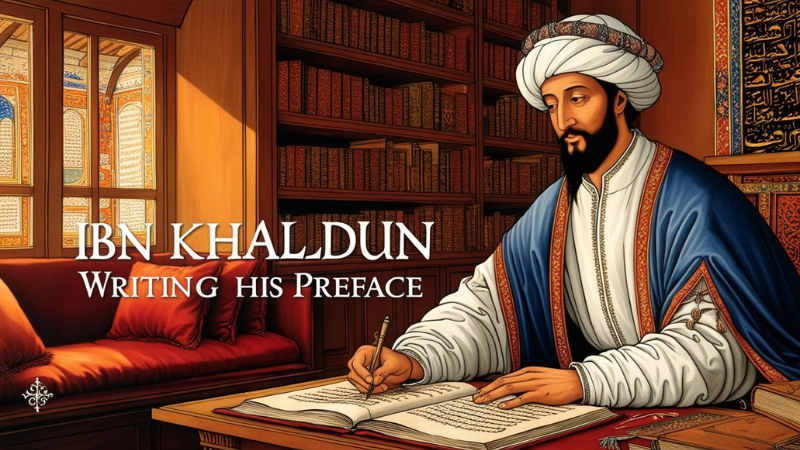
This Islamic book is a milestone in Islamic thought, and every Muslim should benefit from it so that he can better understand history and society.
9۔Tafsir Ibn Kathir (Tafsir Ibn Kathir)
Tafsir Ibn Kathir is the most famous book on the interpretation of the Quran. This book explains the verses of the Quran in depth and clarifies their messages. Every Muslim should study this commentary to understand the true meaning of the Quran so that he can improve his life.
This book delves deeply into the golden era of his caliphate, highlighting his revolutionary reforms in administration, welfare, and social justice. It paints a vivid picture of how he upheld the principles of equality, ensuring that the rights of the weak and marginalized were protected under his rule. Through Shibli Nomani’s captivating narrative, readers can explore the profound lessons of justice, humility, and devotion that define Hazrat Umar’s leadership style.
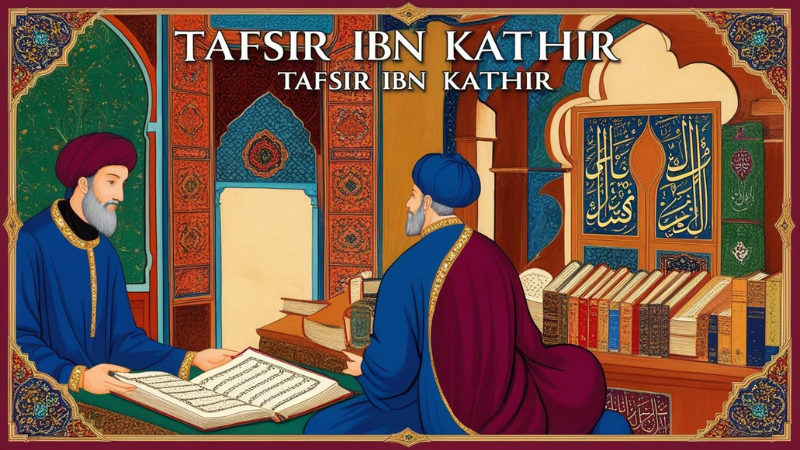
10۔Al-Farooq (Al-Farooq by Shibli Nomani)
Al-Farooq is a remarkable masterpiece based on the life and legacy of Hazrat Umar ibn al-Khattab, one of the greatest and most influential rulers in Islamic history. Known for his unparalleled sense of justice, wisdom, and leadership, Hazrat Umar transformed the Islamic empire into a beacon of strength, equity, and moral governance.
More than just a historical account, Al-Farooq inspires modern readers to reflect on the timeless values of accountability, responsibility, and compassion. Whether you’re seeking insight into Islamic governance or moral guidance for personal growth, this book is a treasure trove of wisdom that transcends time and resonates with readers across generations.
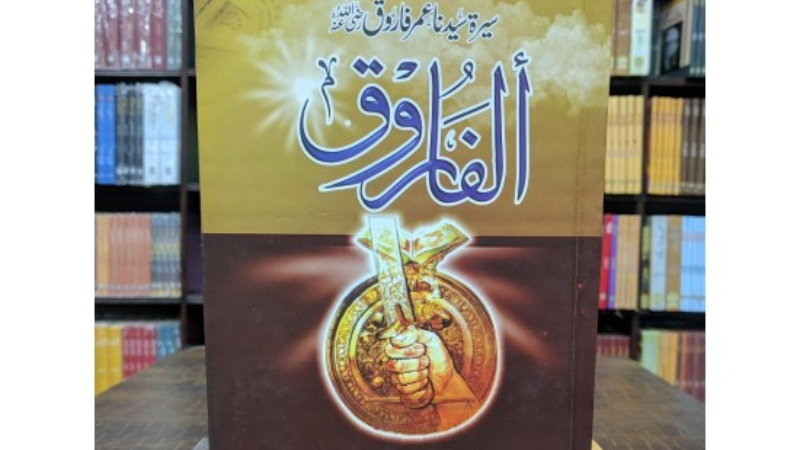
Summary: Top Must-Read Islamic Books
| Significance | Topic | Author | Book Title |
| Foundation of Faith | Spiritual and Ethical Guidance | Allah’s Revelation | The Quran |
| Understanding the Sunnah | Hadith | Imam Bukhari | Sahih Bukhari |
| Key Islamic Teachings | Hadith | Imam Muslim | Sahih Muslim |
| Revival of Islamic Principles | Spirituality and Ethics | Imam Al-Ghazali | Ihya Ulum al-Din |
| Islamic Healing Practices | Health and Medicine | Ibn al-Qayyim | The Medicine of the Prophet |
| Model of Justice and Governance | Life of Umar (RA) | Shibli Nomani | Al-Farooq |
| Foundation of Social Sciences | History and Sociology | Ibn Khaldun | Muqaddimah |
| Comprehensive Quran Explanation | Quranic Exegesis | Ibn Kathir | Tafsir Ibn Kathir |
| Lessons from Prophets’ Stories | Prophetic Lives | Ibn Kathir | Stories of the Prophets |
| Authentic and Engaging Biography | Biography of the Prophet | Martin Lings | Muhammad: His Life Based on the Earliest Sources |
Conclusion
Reading these Islamic books helps Muslims strengthen their faith, deal with life’s difficulties, and practice the principles of religion. Each book carries a unique message that deepens the understanding of Islamic teachings and provides a source of inspiration in every aspect of life.
Through these books, a person not only nurtures their spirituality but also develops a stronger sense of purpose, moral integrity, and accountability to the Creator. They serve as a guiding light for those seeking clarity and connection with Allah in a world full of distractions and challenges.
Moreover, these Islamic writings emphasize the values of compassion, justice, and selflessness, reminding every Muslim of their responsibilities toward family, community, and humanity as a whole. By imbibing the knowledge and wisdom offered by these books, one can walk the path of righteousness and live a life filled with meaning, inner peace, and true success in this world and the Hereafter.
These books are not just for individual growth but are treasures of knowledge that inspire collective development, making them a cornerstone for anyone striving to live an exemplary Islamic life.
———————–
You may also like
